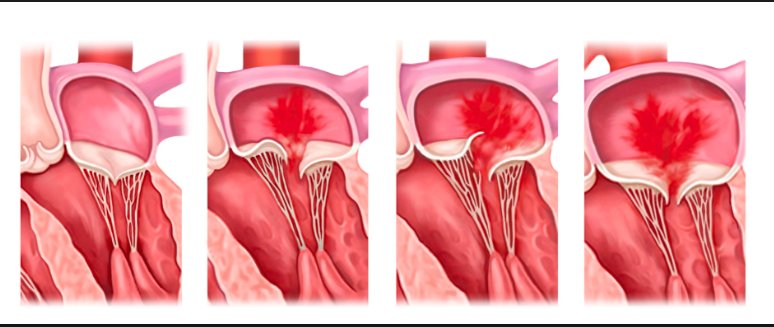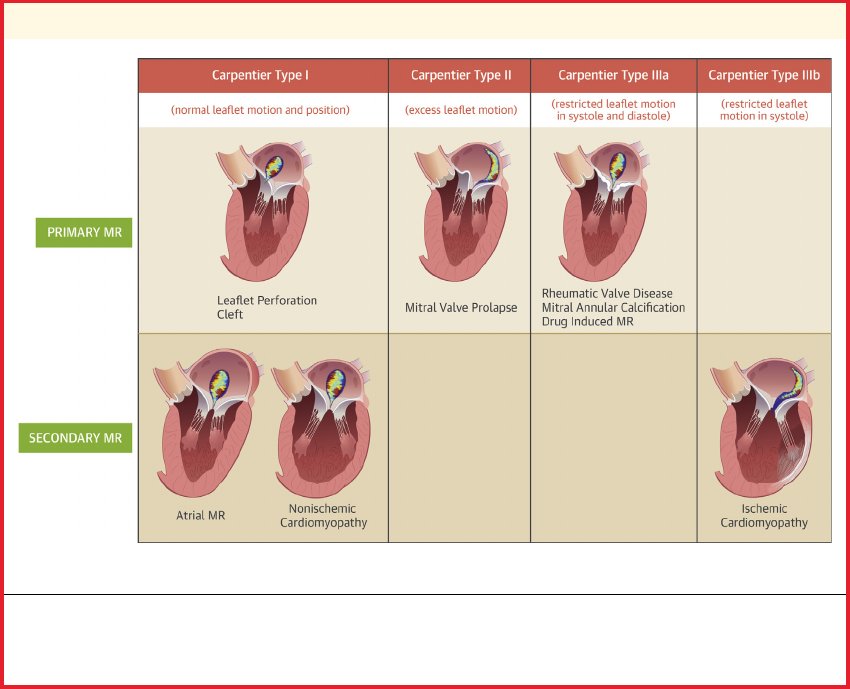Continuing #FITSurvivalGuide: Brief outlook Mitral Regurgitation (MR) Management
(awesome part 1 of MR dx by @sairasamani)
⬆️age = ⬆️incident MR requiring ?🏥zations/intervention -->healthcare 💰💰
Untreated severe MR ass. w/ poor outcomes 2/2 volume overload of the ❤️
(awesome part 1 of MR dx by @sairasamani)
⬆️age = ⬆️incident MR requiring ?🏥zations/intervention -->healthcare 💰💰
Untreated severe MR ass. w/ poor outcomes 2/2 volume overload of the ❤️

2⃣/ First Step: Primary Vs Secondary MR? 🧐
Secondary MR --> further to be classified as ischemic or non ischemic in origin.
Identify MR Etiology by Carpentier Functional Classification
(see image: El Sabbagh, A. et al. J Am Coll Cardiol Img. 2018;11(4):628–4)
Secondary MR --> further to be classified as ischemic or non ischemic in origin.
Identify MR Etiology by Carpentier Functional Classification
(see image: El Sabbagh, A. et al. J Am Coll Cardiol Img. 2018;11(4):628–4)

3⃣/ Primary MR:
Asymptomatic patients w/ severe primary MR preserved LVEF(>60%, LV end-sys dimension <40 mm [stage C1]) ▶️ mitral valve surgery is reasonable in the setting of serial imaging studies that reveal a progressive increase in LV size or decrease in LVEF (Class IIa)
Asymptomatic patients w/ severe primary MR preserved LVEF(>60%, LV end-sys dimension <40 mm [stage C1]) ▶️ mitral valve surgery is reasonable in the setting of serial imaging studies that reveal a progressive increase in LV size or decrease in LVEF (Class IIa)

4⃣/ Secondary MR:
Same as severe 1*MR (effective regurgitant orifice area ≥0.4 cm sq, regurgitant volume ≥60 ml, regurgitant fraction ≥50%).
✔️Therapies to reverse remodeling in HF (e.g ACE-I, ARBs, BBs, CRT & so on) 🔜 decrease MR severity!
Same as severe 1*MR (effective regurgitant orifice area ≥0.4 cm sq, regurgitant volume ≥60 ml, regurgitant fraction ≥50%).
✔️Therapies to reverse remodeling in HF (e.g ACE-I, ARBs, BBs, CRT & so on) 🔜 decrease MR severity!
5⃣/ Pathway for approaching patients with Primary MR as explained in the flowchartbelow.
(El Sabbagh, A. et al. J Am Coll Cardiol Img. 2018;11(4):628–4)
(El Sabbagh, A. et al. J Am Coll Cardiol Img. 2018;11(4):628–4)

6⃣/ Pathway for approaching patients with Secondary MR as explained in the flowcharts below.
No mortality benefit to surgical intervention vs Rx - surgical correction of severe secondary MR must only be considered after optimal
medical Rx (at least 6 mths)
No mortality benefit to surgical intervention vs Rx - surgical correction of severe secondary MR must only be considered after optimal
medical Rx (at least 6 mths)

7⃣/ For more reading:
Excellent review of current ACC/AHA guidelines available at: acc.org/latest-in-card…
And State of the Art review from El Sabbagh, A. et al. (J Am Coll Cardiol Img. 2018;11(4):628–4)
And State of the Art review from El Sabbagh, A. et al. (J Am Coll Cardiol Img. 2018;11(4):628–4)

• • •
Missing some Tweet in this thread? You can try to
force a refresh




